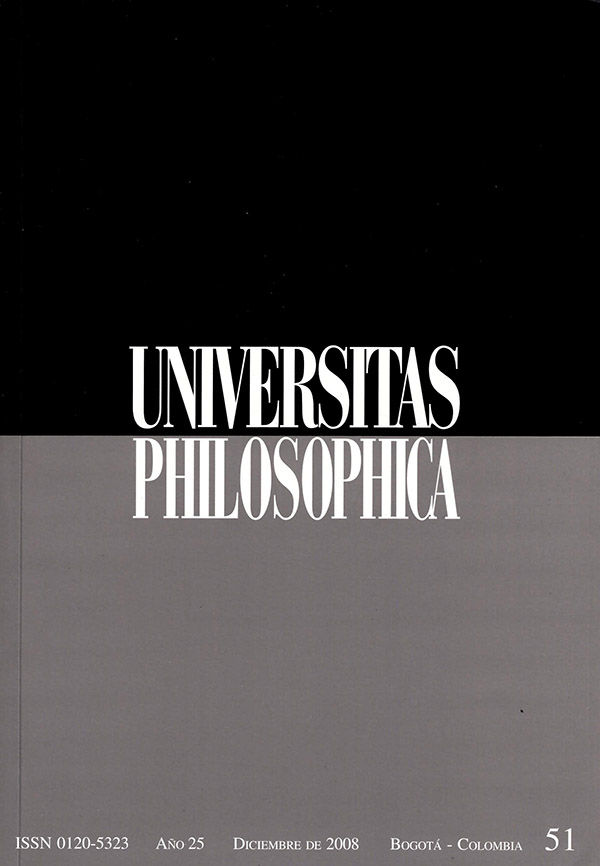Abstract
First person methodologies on the study of consciousness have a great relevance in Francisco Varela's thought which this essay aims to highlight. Firstly, describing some philosopher’s remarks on the irreducible character of consciousness, followed by a presentation of three ways to access it in the first person mode: introspection, phenomenology, and some Madhyamika Buddhist practices; subsequently, through an enquiry into the implementation of these methods and their validity and finally, reflecting on some existential and theoretical consequences these practices have for cognitive sciences and the philosophy of the mind.
This journal is registered under a Creative Commons Attribution 4.0 International Public License. Thus, this work may be reproduced, distributed, and publicly shared in digital format, as long as the names of the authors and Pontificia Universidad Javeriana are acknowledged. Others are allowed to quote, adapt, transform, auto-archive, republish, and create based on this material, for any purpose (even commercial ones), provided the authorship is duly acknowledged, a link to the original work is provided, and it is specified if changes have been made. Pontificia Universidad Javeriana does not hold the rights of published works and the authors are solely responsible for the contents of their works; they keep the moral, intellectual, privacy, and publicity rights.
Approving the intervention of the work (review, copy-editing, translation, layout) and the following outreach, are granted through an use license and not through an assignment of rights. This means the journal and Pontificia Universidad Javeriana cannot be held responsible for any ethical malpractice by the authors. As a consequence of the protection granted by the use license, the journal is not required to publish recantations or modify information already published, unless the errata stems from the editorial management process. Publishing contents in this journal does not generate royalties for contributors.


